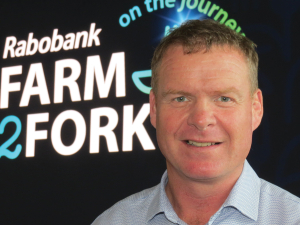A change of government and the possibility of better markets prices has lifted farmer confidence, but it still remains fragile.
Rabobank’s first Rural Confidence Survey of 2024 has found New Zealand farmer sentiment continues to surge higher – despite overall confidence remaining low.
Completed in early March, the survey found while 38% of farmers still expect the performance in the broader agri-economy to worsen in the coming year, this is down from 58% saying the same last quarter.
However, the amount expecting conditions to improve went from 11% to 22% and those expecting conditions to remain the same went from 29% to 39%.
Broader confidence in the agri-economy rose from -47% to -16%.
Rabobank chief executive Todd Charteris says while confidence was still back on what the bank would like to see, it was pleasing to see farmer confidence across all sectors continuing to improve.
“Growers’ net reading on this measure rose to +22% and they continue to remain upbeat about the year ahead off the back of a strong season for most horticultural products and robust overseas demand for their products.
“Dairy farmers are also considerably more positive than last quarter (up to +5% from -20%) largely attributable to Fonterra lifting its farm gate milk price for the 23/24 season to a midpoint of $7.80 kg/MS in February – a move which came off the back of six consecutive GDT event price lifts across late 2023 and early 2024.”
While sheep and beef farmers also had significantly higher expectations for their own businesses, continuing underwhelming sheep prices have kept the overall net reading low (-31% from -62%).
Among farmers with an optimistic outlook, government policy is the major factor cited for holding this view (nominated by 28%). Other factors that came through in the survey as reasons for optimism included rising commodity prices (20%) and overseas markets/ economies (17%) with farmers’ expectations for their own business operations lifting to -9% from -31% last quarter.
“It does seem clear that primary producers are more comfortable with the direction of government policy under the new coalition government than they had been under the previous administration,” Charteris adds.
Among those expecting conditions to worsen, rising input costs continued to be the main source of farmer concern (63%). Falling commodity prices (45%) and rising interest rates (42%) are the next most significant concerns among primary producers with a pessimistic outlook.
Escalating tensions in the Red Sea and its potential trade implications are also a cause for concern.
Charteris says the major black spot in the survey is the rise in farmers self-assessing their own operation as unviable, with this number climbing to 9% from 6% last quarter (but down from 12% June 2024).
“While the general uplift in confidence registered in the survey is positive, the rise back up to 9% does illustrate just how difficult the 23/24 season has been.”



















